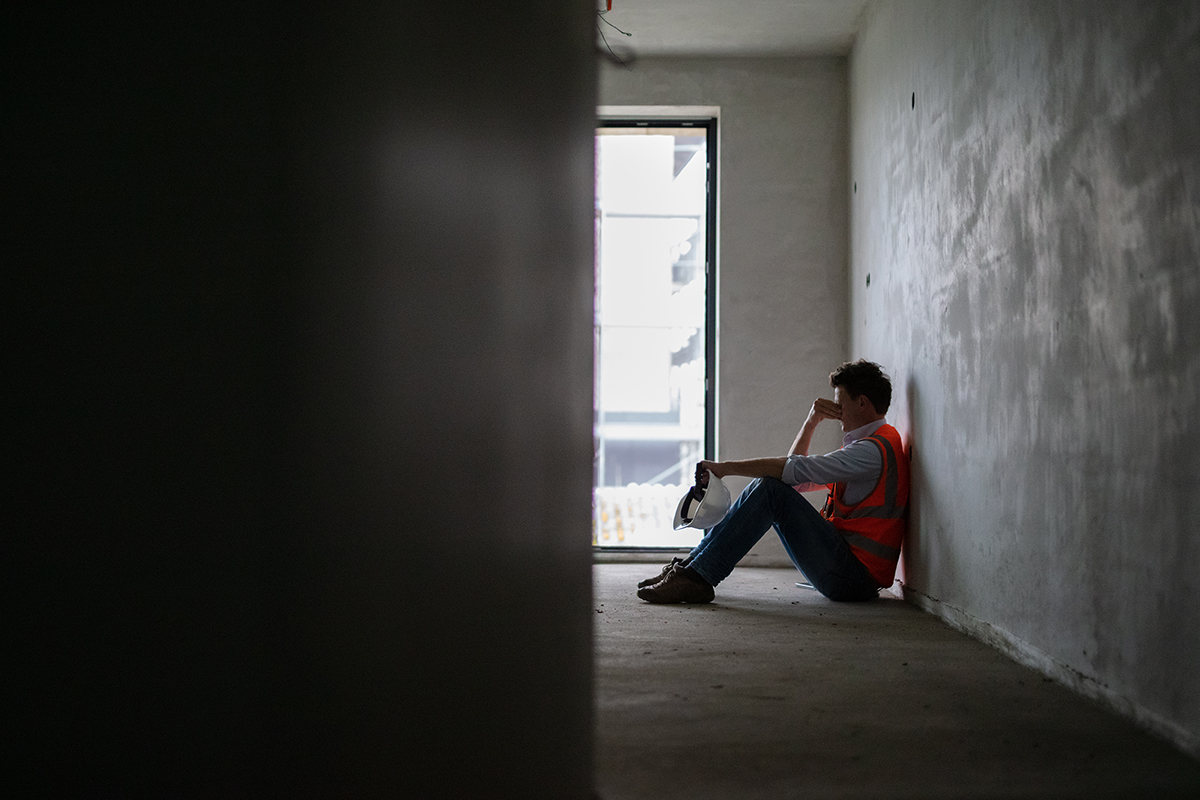Spurred on by the pandemic, several industries are currently experiencing a mental health crisis. However, the construction sector is believed to be the industry with the highest mental health issues.
So, let’s a closer look at the mental health crisis faced by the construction industry!
How Serious Is the Mental Crisis?
 The construction industry is known for generating jobs for large numbers of people, making it one of the biggest employers in the world. The US construction sector, for example, employs nearly eight million people, while the CITB reported that there are 2.69 million construction workers in the UK. Statistics and research, however, show that many construction workers are targets of “silent killers.”
The construction industry is known for generating jobs for large numbers of people, making it one of the biggest employers in the world. The US construction sector, for example, employs nearly eight million people, while the CITB reported that there are 2.69 million construction workers in the UK. Statistics and research, however, show that many construction workers are targets of “silent killers.”
Mental illness and productivity are closely linked. Mental health issues such as anxiety and depression can have a significant impact on workers, causing them to lose concentration and perform poorly in their day-to-day work activities. The construction industry is currently one of the most common sectors with the highest mental health issues. A CIOB survey in 2020 discovered that a huge number of construction workers were experiencing mental health issues; with 87 % of respondents suffering from anxiety, 70 % suffering from depression and 97 % dealing with stress.
A recent CDC study reported that construction workers were the most vulnerable to drug and alcohol abuse. The number of construction employees abusing prescription opioids is approximately 3.2 % versus 2 % of the general population. Another research revealed how high levels of work-related stress are leading to increased consumption and use of alcohol and drugs in the construction industry.
Furthermore, the Centers for Disease Control claimed that the construction sector has the highest suicide rate of all industries. According to ONS findings, people working in the construction industry in the UK have the highest risk of committing suicide. Based on these findings, it was revealed that over 1, 400 construction workers in the UK had taken their own lives between 2011 and 2015. While the Australian construction industry has reported more than 190 suicide cases, the US Bureau of Labor Statistics revealed that men working in the construction industry have the highest risk of committing suicide.
Who Is Most at Risk?
 The construction industry doesn’t only consist of construction managers and building inspectors, but it’s also a platform where many tradies like carpenters, painters and joiners start their careers. Unfortunately, according to ONS findings, laborers, crane operators, plasterers and painters are some of the most common job roles in the construction industry that are exposed to mental health issues.
The construction industry doesn’t only consist of construction managers and building inspectors, but it’s also a platform where many tradies like carpenters, painters and joiners start their careers. Unfortunately, according to ONS findings, laborers, crane operators, plasterers and painters are some of the most common job roles in the construction industry that are exposed to mental health issues.
Further studies have revealed that men in the construction industry are generally more at risk from health issues like suicide and depression than women.
What Can Be Done?
 Zippia revealed that there are approximately 5, 500,000 construction workers in the US. If one couple these numbers with the suicide rates in the US construction industry and make a thorough analysis, it would mean that 4,000 or more construction workers could die each year.
Zippia revealed that there are approximately 5, 500,000 construction workers in the US. If one couple these numbers with the suicide rates in the US construction industry and make a thorough analysis, it would mean that 4,000 or more construction workers could die each year.
Previously, there has been a stigma to approaching mental health issues in the construction industry. However, since suicide cases and rates continue to be unacceptably higher among construction workers, there is a need to find new and better ways to solve this mental health crisis.
So, here are some suggestions made by different experts:
- Raise awareness: Studies have found that three in five construction workers would hide their mental health issues from their employers. An online survey of nearly 1, 200 construction managers and supervisors revealed that 37 % of respondents said they didn’t believe workers would feel comfortable sharing their mental health issues due to the stigmas attached to them. Therefore, there is a need for employers to take a proactive approach and raise awareness about disclosing mental health concerns.
- Implement a support helpline: The construction industry should a 24/7 support system in place to help and support workers who are struggling with their mental health.
- Host mental health awareness training courses: To facilitate the management of mental health in the construction industry, employers should motivate workers to enroll in mental health awareness training.